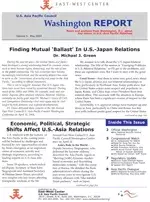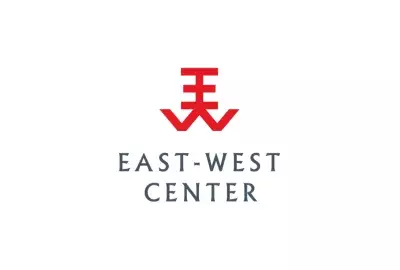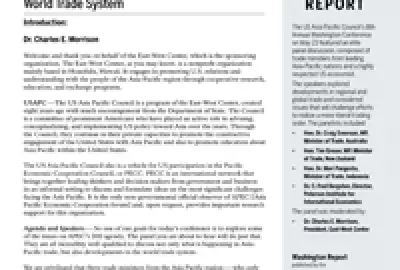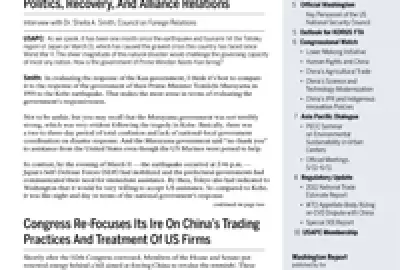Error message

During the past 60 years, the United States and Japan have developed a strong relationship based on common values such as basic human rights, democracy, and the rule of law in the global community. The two economies have become increasingly intertwined, and the security alliance has come to serve as the "cornerstone of security and peace in the Asia Pacific," according to official statements.
This is not to suggest, however, that U.S.-Japan relations have never been tested by occasional discord. During much of the 1980s and 1990s, for example, trade and economic disputes often strained relations. Bilateral relations currently are fairly good, says Dr. Michael J. Green of CSIS and Georgetown University—but once again may be challenged by both domestic and regional developments. Dr. Green delivered these remarks at the 5th Annual East-West Center/U.S. Asia Pacific Council Washington Conference on April 11, 2008.
During the past 60 years, the United States and Japan have developed a strong relationship based on common values such as basic human rights, democracy, and the rule of law in the global community. The two economies have become increasingly intertwined, and the security alliance has come to serve as the "cornerstone of security and peace in the Asia Pacific," according to official statements.
This is not to suggest, however, that U.S.-Japan relations have never been tested by occasional discord. During much of the 1980s and 1990s, for example, trade and economic disputes often strained relations. Bilateral relations currently are fairly good, says Dr. Michael J. Green of CSIS and Georgetown University—but once again may be challenged by both domestic and regional developments. Dr. Green delivered these remarks at the 5th Annual East-West Center/U.S. Asia Pacific Council Washington Conference on April 11, 2008.







